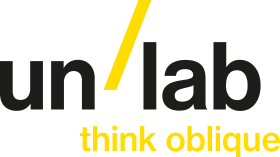EUROPEAN PROJECTS
EMPLOY.M.E.N.T. – EMPLOY Myself Enhancing My Natural Talent
The project
EMPLOY.M.E.N.T. – EMPLOY Myself Enhancing My Natural Talent
Project number: 2021-2-RO01-KA210-YOU-000049006
Erasmus+ KA210-YOU – Small-scale partnerships in youth
2022 -2023 (14 months)
Partner
CREATIVE PROJECTS AND EVENTS (Romania) – https://www.creativepro.ro
UN-LAB (Italy) – https://www.un-lab.it/
Summary
The project is being implemented under the Erasmus+ program, by 2 organizations from Romania and Italy. Its main objective is to strengthen the employability of young people and their active participation in society through the development of entrepreneurship training that will span a comprehensive set of measures aimed at facilitating young people to start and run their own business.
Specific Objectives
- to promote entrepreneurship education and equip young people with tools to develop entrepreneurship skills through online training
- to raise awareness of young people on the issues related to the labour market
- to raise awareness about entrepreneurship education and establish networks of young people/young entrepreneurs for mutual exchange of skills and competences and for professional development
- to increase participation of young people and their self-confidence
Target Groups
DIRECT:
- young unemployed
- young that wish to start their own business
- young entrepreneurs
INDIRECT:
- Educational institutions and training centres
- youth forums and organisations
RELEVANT STAKEHOLDERS
- policy makers at local, regional, national and EU level
- representatives of employment offices and revenue agencies
Results
- “Employ myself by enhancing my natural talent” – Online Training on entrepreneurship which main objective is to introduce participants to all aspects related to starting a business
- “Where to start from?” – Administrative Manual with national and European laws and regulations
The following project results have the objectives to:
- Develop Entrepreneurial Mindset: The results produced within the project aim to cultivate an entrepreneurial mindset among users, fostering creativity, innovation, and a proactive approach to problem-solving. Users will learn to think critically, identify opportunities, and embrace risk-taking.
- Enhance Business Planning and Management Skills: The project results seek to equip users with essential business planning and management skills. This includes understanding market research, developing business plans, financial management, marketing strategies, and effective communication.
- Foster Knowledge of Legal and Regulatory Frameworks: Users will gain knowledge of the legal and regulatory frameworks relevant to entrepreneurship, such as company formation, intellectual property rights, tax regulations, and employment laws. This understanding will help them navigate legal requirements and ensure compliance.
- Promote Financial Literacy and Access to Funding: The project results aim to enhance users’ financial literacy, enabling them to effectively manage finances, budgeting, and cash flow. Additionally, users will learn about funding options, including grants, loans, and venture capital, and how to develop a compelling pitch to attract investors.
- Cultivate Networking and Collaboration Skills: Usrers will develop networking and collaboration skills to build connections, partnerships, and support networks within the entrepreneurial ecosystem. They will learn to leverage resources, engage in effective communication, and seek mentorship opportunities.
- Enhance Digital and Online Presence: Given the importance of digital platforms, some of the results focus on developing participants’ digital and online presence. This includes understanding e-commerce, social media marketing, website development, and utilizing digital tools to reach a wider customer base.
- Encourage Sustainable and Responsible Entrepreneurship: The project results aim to promote sustainable and responsible entrepreneurship practices. Users will learn about ethical considerations, social impact, environmental sustainability, and corporate social responsibility. They will be encouraged to integrate these principles into their business models.
- Support Access to Mentoring and Support Networks: The project results intend to connect users with mentoring and support networks. This will provide them with guidance, advice, and mentorship from experienced entrepreneurs, fostering personal and professional growth.
- Foster Resilience and Adaptability: Users will develop resilience and adaptability skills to navigate challenges and uncertainties commonly faced by entrepreneurs. They will learn to embrace failures as learning opportunities, pivot strategies when necessary, and develop a growth mindset.
- Instill Confidence and Empowerment: The overall objective is to instill confidence and empowerment in users, enabling them to pursue their entrepreneurial goals with determination and self-belief. The project results aim to provide them with the knowledge, skills, and support necessary to succeed in their entrepreneurial endeavors.
“COLLECTION OF NATIONAL AND EUROPEAN FACILITIES” – List of existing mentoring, coaching, and support services and networks available at national, and European level
MANUAL – “WHERE TO START FROM?”- Administrative Manual with national and European laws and regulations
“Employ myself by enhancing my natural talent”
Online Training on entrepreneurship which main objective is to introduce participants to all aspects related to starting a business
Learning outcomes:
- Understanding the concept of a “frugal business” and its potential benefits: Participants will learn about the concept of starting a business with limited resources and understand how this approach can be advantageous in the current entrepreneurial landscape. They will recognize that passion, adaptability, resourcefulness, and discipline are essential qualities for running a frugal business.
- Identifying the makings of a frugal entrepreneur: Participants will explore the key traits and characteristics that contribute to success in a frugal business. These include passion, independence, adaptability, curiosity, organization, method, order, and a love for the chosen work. By understanding and developing these qualities, young entrepreneurs can enhance their chances of building successful frugal businesses.
- Exploring alternative strategies for starting a business with limited means: Participants will be introduced to various strategies and approaches that allow them to start a business without significant financial investments. These include building a website and collecting pre-orders, utilizing platforms like eBay for product sales, joining dropshipping programs, and personally surveying potential customers to gauge interest in their services. By exploring these alternatives, participants will gain practical insights into starting a business with minimal financial resources.
- Understanding the concept and benefits of dropshipping: Participants will learn about the dropshipping model, where orders are fulfilled and delivered by a third-party supplier on behalf of the merchant. They will understand how dropshipping can be a viable option for entrepreneurs to offer products without the need for inventory management or significant upfront investments. Participants will gain knowledge about how to leverage dropshipping to streamline their business operations and increase efficiency.
- Awareness of the European Social Fund (ESF) and its support for vocational training: Participants will become familiar with the European Social Fund as a channel for the development and financing of vocational training. They will understand that the ESF supports various training interventions aimed at workers, businesses, individuals facing employment challenges, young people, and socially disadvantaged groups. Participants will gain an understanding of the purposes and objectives of the ESF, including promoting adaptability, lifelong learning, and social inclusion through employment.
- Emphasizing the importance of personalized communication and customer relationships: Participants will recognize the value of personalized communication and developing strong relationships with customers. They will understand that despite having a smaller customer base or being relatively unknown in the market, they can differentiate themselves by offering fast delivery times, flexible solutions, and a personalized, trustworthy approach. Participants will learn the significance of effective communication in building trust and gaining customer loyalty.
Learning outcomes:
- Understanding the concept and importance of a business plan: Participants will grasp the purpose and significance of a business plan as a comprehensive document that outlines the vision, strategies, and financial aspects of a business venture. They will recognize that a well-crafted business plan serves as a roadmap for success and is essential for attracting investors, securing funding, and guiding the growth of the business.
- Acquiring knowledge of the components and structure of a business plan: Participants will learn about the key sections and elements that constitute a business plan. This includes understanding the purpose and content of each section, such as the executive summary, project description, operational plan, marketing plan, financial plan, and investment plan. Participants will gain the ability to effectively organize and present information in a clear and concise manner within the structure of a business plan.
- Developing skills in market analysis and competitive assessment: Participants will acquire the skills to conduct thorough market research, analyze industry trends, and identify target customers. They will learn how to evaluate the competitive landscape and identify competitors’ strengths and weaknesses. Through this analysis, participants will be able to define their unique value proposition and positioning in the market.
- Enhancing financial literacy and forecasting capabilities: Participants will gain a solid understanding of financial concepts and tools necessary for financial planning and forecasting. They will learn how to create financial projections, including income statements, balance sheets, and cash flow statements. Participants will develop the ability to assess the financial viability of their business ideas, estimate start-up costs, and project revenue and expenses.
- Strengthening strategic thinking and decision-making skills: Participants will develop strategic thinking skills by aligning their business goals with market opportunities and challenges. They will learn to make informed decisions by evaluating risks and rewards, identifying growth strategies, and setting realistic objectives. Participants will understand the importance of flexibility and adaptability in responding to changing market conditions and refining their business plans accordingly.
- Effective communication and presentation skills: Participants will enhance their communication and presentation abilities by articulating their business ideas and plans effectively. They will learn to convey their value proposition, target market, competitive advantage, and financial projections in a compelling and concise manner. Participants will gain confidence in presenting their business plans to potential investors, partners, and stakeholders.
- Understanding the financing options and funding sources: Participants will be introduced to various financing options available to entrepreneurs, such as equity funding, debt financing, grants, and subsidies. They will learn about different funding sources, including government programs, venture capital, angel investors, and crowdfunding platforms. Participants will gain insights into how to align their funding needs with the appropriate financing sources based on their business models and growth plans.
- Developing an entrepreneurial mindset and resilience: Through the process of creating a business plan, participants will cultivate an entrepreneurial mindset characterized by creativity, adaptability, perseverance, and a willingness to take calculated risks. They will understand that entrepreneurship requires continuous learning, resilience, and the ability to overcome obstacles. Participants will be inspired to embrace entrepreneurship as a journey of personal and professional growth.
Learning outcomes:
- Understanding the SOHO business model: Participants will gain a comprehensive understanding of the SOHO business model, including its definition, characteristics, and benefits. They will grasp the concept of running a small business from a small office, home, or virtually, and the advantages it offers in terms of cost savings and flexibility.
- Identifying the target market and niche opportunities: Participants will learn how to identify their target market and niche opportunities within the SOHO business context. They will develop skills in market research and analysis to identify customer needs and preferences, allowing them to tailor their products or services to meet those demands effectively.
- Building a lean and efficient operation: Participants will acquire knowledge and strategies for building and operating a lean and efficient SOHO business. They will learn techniques to optimize resources, reduce overhead costs, and streamline operations to maximize profitability. This includes effective utilization of technology, outsourcing, and leveraging virtual office spaces or coworking arrangements.
- Managing a self-employed business: As most SOHO businesses are self-employed ventures, participants will gain insights into the unique challenges and responsibilities associated with managing a self-employed business. They will learn about legal and financial considerations, time management techniques, and effective self-promotion strategies to enhance their professional image and market presence.
- Developing networking and collaboration skills: Participants will understand the importance of networking and collaboration in the SOHO business environment. They will learn strategies for building professional networks, forming partnerships, and collaborating with other professionals to expand their reach, share resources, and seize growth opportunities.
- Acquiring digital literacy and remote work skills: As technology plays a crucial role in the success of SOHO businesses, participants will develop digital literacy skills and remote work capabilities. They will learn about online communication tools, project management platforms, and remote collaboration techniques to effectively operate and communicate within a virtual work environment.
- Financial management and budgeting: Participants will develop financial management skills specific to SOHO businesses. They will learn how to create and maintain financial records, develop budgets, track expenses, and manage cash flow effectively. Participants will understand the importance of financial planning and sound financial practices for the long-term sustainability of their SOHO ventures.
- Embracing work-life balance and well-being: Given the nature of operating a SOHO business, participants will be encouraged to prioritize work-life balance and well-being. They will learn strategies for setting boundaries, managing stress, and maintaining personal and professional well-being. Participants will understand the significance of self-care and creating a harmonious work environment to sustain productivity and success.
- Understanding the evolving landscape of remote work: Participants will gain insights into the evolving landscape of remote work and the trends shaping the future of SOHO businesses. They will explore emerging technologies, evolving consumer behaviors, and changing market dynamics to adapt their strategies and stay competitive in the evolving business landscape.
Learning outcomes:
- Understanding the concept of innovative startups: Participants will gain a clear understanding of what defines an innovative startup, including the criteria and requirements that differentiate it from other types of businesses. They will grasp the concept of high technological content, strong growth potential, and the role of innovative startups in driving economic development.
- Identifying the benefits and facilitations for innovative startups: Participants will learn about the various benefits and facilitations available to innovative startups, such as access to soft loans, tax breaks for venture capital investments, facilitations for credit and bank guarantees, mentoring and training services, and opportunities to participate in tenders and competitions. They will understand how these incentives and support mechanisms can enhance the growth and development of their startups.
- Navigating the process of accessing innovative startup status: Participants will gain knowledge of the steps and requirements involved in accessing innovative startup status. They will learn about the self-certification process, the legal and objective requirements that need to be met, and the subjective requirements related to research and development expenses, highly qualified personnel, and intellectual property ownership.
- Leveraging financial resources for growth: Participants will acquire skills in accessing financial resources specifically available for innovative startups. They will learn how to navigate the landscape of soft loans, venture capital funds, and tax incentives, and understand the process of securing funding to support their startup’s growth and development.
- Enhancing strategic planning and decision-making: Participants will develop skills in strategic planning and decision-making within the context of innovative startups. They will learn how to align their business goals with the criteria for innovative startup status, develop a roadmap for growth, and make informed decisions that maximize the benefits and opportunities available to them.
- Building a network and leveraging partnerships: Participants will understand the importance of building a network and leveraging partnerships in the ecosystem of innovative startups. They will learn strategies for networking, collaborating with other startups, industry experts, investors, and mentors to access resources, gain industry insights, and foster growth opportunities for their startups.
- Intellectual property management: Participants will gain insights into the significance of intellectual property (IP) management for innovative startups. They will learn about the value of patents, trademarks, and registered software, and the benefits of protecting their IP assets. They will develop an understanding of IP strategies and how to leverage their IP rights for competitive advantage and business growth.
- Scaling and transitioning to Innovative SMEs: Participants will learn about the opportunities and considerations for scaling their innovative startups and transitioning to Innovative Small and Medium-sized Enterprises (SMEs). They will understand the benefits of maintaining the available benefits and incentives while expanding their operations and the potential challenges and strategies involved in this transition.
Learning outcomes:
- Understanding the concept of coworking: Participants will gain a clear understanding of the concept of coworking and its benefits. They will learn about the shared workspace model, the advantages of working alongside professionals from diverse backgrounds, and the potential for collaboration and networking in a coworking environment.
- Exploring different types of coworking: Participants will learn about the horizontal and vertical approaches to coworking. They will understand the differences between these two models and the benefits they offer. They will gain insights into the dynamics of working alongside professionals from various industries or within a specific sector.
- Identifying the essentials of opening a coworking space: Participants will learn about the key considerations and requirements for opening a successful coworking space. They will understand the importance of having good managerial and organizational skills, as well as demonstrating interpersonal skills to meet the needs of demanding professionals. They will gain knowledge about creating a comfortable and functional workspace that meets the needs of coworking members.
- Setting up a well-equipped coworking office: Participants will learn about the essential elements that should be included in a coworking office. They will gain knowledge about legal compliance for desks and office seating, the importance of a reliable internet connection, functional and up-to-date IT equipment, printers, phones, appropriate lighting, charging facilities, stationery, meeting rooms, break areas, office bookcases, and the significance of providing a comfortable working environment.
- Managing a coworking community: Participants will learn strategies for effectively managing a coworking community. They will understand the importance of fostering a positive and inclusive atmosphere, promoting collaboration and networking among members, resolving conflicts, and creating opportunities for engagement and community-building activities. They will gain insights into member retention and satisfaction.
- Business operations and financial considerations: Participants will acquire knowledge of the operational and financial aspects of running a coworking space. They will learn about pricing models, membership options, lease agreements, and revenue streams. They will understand the importance of financial planning, budgeting, and managing expenses to ensure the sustainability and profitability of the coworking business.
- Customer service and member engagement: Participants will develop skills in providing excellent customer service to coworking members. They will learn strategies for effectively addressing member needs, responding to inquiries and concerns, and fostering a supportive and productive community. They will gain insights into member engagement initiatives, such as organizing events, workshops, and networking opportunities to enhance the coworking experience.
- Networking and collaboration: Participants will understand the value of networking and collaboration within a coworking environment. They will learn strategies for building relationships with coworking members, fostering partnerships, and leveraging the diverse skills and expertise present in the community. They will gain insights into the benefits of collaborative projects and how they can contribute to the success of both individual businesses and the overall coworking ecosystem.
Learning outcomes:
- Understanding the importance of a coordinated corporate image: Participants will recognize the significance of a coordinated corporate image in establishing a strong first impression. They will understand that the corporate image extends beyond just a logo and encompasses various elements such as communication channels, product design, packaging, business cards, uniforms, and more.
- Creating a consistent and coherent corporate image: Participants will learn how to create a coordinated corporate image that is consistent and in harmony with the overall corporate communication line. They will understand the importance of coordinating graphic lines, colors, and images across different channels to enhance the credibility of their communication efforts.
- Developing a corporate coordinated image manual: Participants will gain knowledge of the process of developing a corporate coordinated image manual. They will understand the components that should be included in the manual, such as the corporate color palette, brand font usage, logo variations and positioning, graphic layouts for different communication materials, and website design elements. They will recognize the manual as a tool for communicating the company’s identity and ensuring coherence in external communications.
- Communicating the business purpose: Participants will understand the importance of conveying a clear and convincing business purpose in their corporate image. They will learn that people are more likely to connect emotionally and make purchasing decisions based on the “why” behind the organization rather than just the “what” or “how” of the product or service. They will recognize the impact of a strong purpose on reputation and market positioning.
- Differentiating from competitors: Participants will gain insights into the significance of conducting a preliminary analysis of the market and competition to avoid building graphics similar to competitors. They will learn the importance of using unique symbols, color combinations, and graphic representations that differentiate their company and avoid confusion among customers. They will understand the value of standing out and creating a distinct visual identity.
- Defining brand identity: Participants will learn the importance of clearly defining their brand identity as a foundation for the coordinated corporate image. They will understand that the coordinated image is an expression of the brand identity and plays a crucial role in brand recognition and customer experience. They will recognize the need to establish fixed points of values and identity to facilitate brand assimilation and enhance brand experience over time.
Learning outcomes:
- Understanding lead generation as a marketing strategy: Participants will grasp the concept of lead generation as a strategy to acquire contacts of potential customers who are interested in their specific product or service. They will learn that lead generation is part of the broader approach of inbound marketing, which aims to attract and convert customers through valuable content and building relationships.
- Knowledge of lead generation techniques: Participants will gain knowledge of various lead generation techniques, such as creating landing pages, offering lead magnets, and utilizing different channels like SEO, Google Ads, and Facebook Ads. They will understand how each technique targets different types of leads and the importance of tailoring strategies accordingly.
- Application of permission marketing: Participants will learn about the shift from interruption marketing to permission marketing in lead generation. They will understand the significance of obtaining the user’s consent and focusing on users who are genuinely interested in their product or service. They will recognize the benefits of permissive marketing in terms of maximizing conversion rates and building a positive brand reputation.
- Understanding the lead nurturing process: Participants will grasp the concept of lead nurturing, which involves nurturing leads through targeted marketing actions to move them closer to the conversion stage. They will learn about the different stages of the customer journey and the need to adapt strategies based on the “temperature” of the leads, whether they are warm or cold. They will understand the importance of personalized and automated email marketing processes in lead nurturing.
- Familiarity with lead magnets and their effectiveness: Participants will gain an understanding of lead magnets, which are valuable content or offers provided to potential leads in exchange for their contact information. They will learn about different types of lead magnets, such as e-books, white papers, webinars, and podcasts, and how to choose the most suitable lead magnet for their target audience. They will recognize the role of lead magnets in attracting and engaging leads.
- Knowledge of lead generation tools: Participants will become familiar with various tools and platforms used in lead generation, including email service providers, SEO strategies, Google Ads, and Facebook Ads. They will understand how to leverage these tools to drive traffic to landing pages, capture leads, and nurture them through automated processes.
- Maximizing return on investment (ROI) and optimizing advertising costs: Participants will learn how lead generation strategies can help maximize ROI by targeting interested leads and avoiding unnecessary advertising costs. They will understand the advantages of organic traffic through SEO and the benefits of converting warm leads through targeted advertising campaigns.
Learning outcomes:
- Understanding direct mailing as a marketing strategy: Participants will gain an understanding of direct mailing as a marketing strategy that involves sending personalized postal communications to potential prospects. They will recognize the advantages of direct mailing in terms of lead generation and raising brand awareness.
- Knowledge of direct mailing techniques: Participants will learn about the different approaches in direct mailing, such as one-to-many marketing and one-to-one marketing. They will understand how the choice between these approaches depends on the specific communication goals and the nature of the target audience.
- Building an effective direct mail campaign: Participants will learn the essential steps in building an effective direct mail campaign. They will understand the importance of accurate management of customer database information, segmentation of contacts, and proper planning and execution of the campaign. They will recognize the significance of targeted messaging, creativity, clear call-to-action, and effective distribution for the success of the campaign.
- Understanding the advantages of direct mailing: Participants will grasp the advantages of direct mailing as a cost-effective and direct form of commercial communication. They will learn about the high conversion rates associated with direct mail campaigns and the level of trust that consumers place in physical mail. They will recognize the potential increase in turnover and customer acquisition for businesses that utilize direct mail.
- Familiarity with direct mailing tools and services: Participants will gain knowledge of tools and services available for implementing direct mail campaigns. They will learn about platforms like Ufficiopostale.com that offer services for creating, personalizing, and sending direct mail communications. They will understand the options for selecting target audiences, choosing mailing formats, and integrating direct mailing into existing communication systems.
Learning outcomes:
- Understanding the online market: Participants will gain an understanding of the potential and opportunities of selling online. They will learn about the growth of e-commerce and the increasing volume of online sales. They will recognize the need for a solid strategy to successfully market and sell products online.
- Tips for getting started: Participants will learn practical tips to get started with selling online. They will understand the importance of studying the market niche and identifying potential unmet needs. They will learn strategies for finding the right products to sell, including analyzing market demand and studying trends. They will recognize the value of writing a business plan to consider financial aspects and establish a strong brand presence.
- Market research and product selection: Participants will learn how to conduct market research to identify a niche market and define a buyer persona. They will understand the process of finding the right products to sell, considering market demand, trends, and feasibility. They will recognize the importance of choosing products that are lightweight, easily available, and safe to use.
- Business planning and brand development: Participants will gain knowledge of writing a business plan to consider financial aspects, pricing strategies, and profitability. They will understand the significance of developing a strong brand identity to establish a unique and recognizable presence. They will learn about brand elements such as logos, colors, and communication elements. They will recognize the role of brand awareness and trust in attracting customers.
- Choosing the right platform: Participants will learn about different options for selling online, including ecommerce platforms and online marketplaces. They will understand the pros and cons of each option and how to choose the most suitable platform based on their needs, requirements, and growth prospects. They will recognize the importance of considering control, independence, and customization when selecting a platform.
At the end of the course, please download the questionnaire and let us know your opinion




